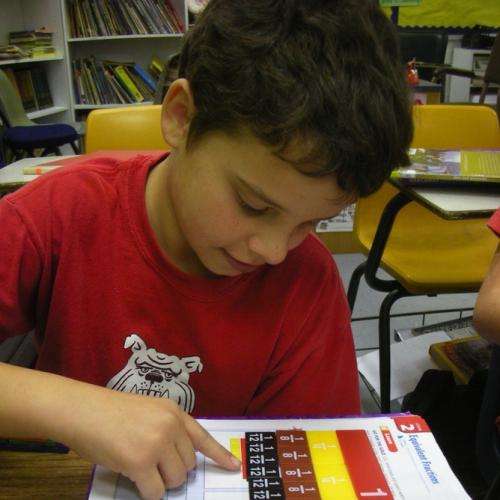Study finds more girls opting out of maths and science

Girls are losing ground in mathematics and science education in NSW, with the number of female students studying no maths for their HSC more than doubling in ten years, according to a new report from the University of Sydney.
The percentage of girls studying no maths jumped from 9.5% in 2001 to 21.8% in 2011. Just 13.8% took one maths and one science subject for their higher school certificate in 2011, according to the report, compared with 18.6% for boys, for which there had been a marginal decline.
The research by John Mack and Barry Walsh reveals a growing gender disparity over the last 10 years, with just 1.5% of girls studying advanced maths alongside physics and chemistry.
"That's a shocking figure," said Dr Rachel Wilson, senior lecturer in educational assessment and research methodology at the University of Sydney's Faculty of Education & Social Work.
The report reveals the gender disparity in maths and science participation is now greater than it was in the 1980s.
Dr Wilson said 10 years ago Australia was well positioned on performance rankings such as PISA and TIMMS, but a more recent decline is likely to be compounded by falling maths and science participation levels.
"The scores are down, the ranks are down with them, but the participation is looking really bad, so that means we've got a long path ahead of us to recover."
Dr Wilson said education choice was a major contributor to the decline in maths and science participation, with 13.5% of girls choosing to study family and community studies in 2011, a subject that was not on offer in 2001.
"Something's gone wrong there that you have nearly as much educational value put on community and family studies as you do on maths."
Dr Wilson said while many educators did not want to compare Australia with the higher performing nations of Japan and Korea, for cultural reasons, even comparisons with the UK and US left Australia falling behind on maths.
"I don't think it's an issue of parenting it's of educational choice and quite possibly having too much of it."
The report comes after the Federal Government committed $22.5 million for the Australian Maths and Science Partnerships Program in last year's Budget, following recommendations from Chief Scientist Ian Chubb to boost participation in science, technology, engineering and maths.
Dr John Ainley, principal research fellow at the Australian Council for Educational Research, said boosting the uptake of science and maths required generating a sustained interest in the field and allowing students to develop a level of competence so they felt confident in what they did.
"The early experience of engagement with science and mathematics is really important," Dr Ainley said.
"The crucial thing is not just to have novel things that catch people's interest, but novel things that are built on in a sustained way."
Dr Wilson has suggested maths be made mandatory in order to improve Australia's international education rankings.
However Dr Ainley said this could simply result in more students studying basic maths.
"I'm more concerned about getting kids engaged at a higher level at maths and that involves putting in the hard work before they get to Year 10."
More information
Provided by The Conversation
This story is published courtesy of The Conversation (under Creative Commons-Attribution/No derivatives).











.jpg)






